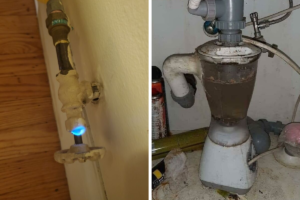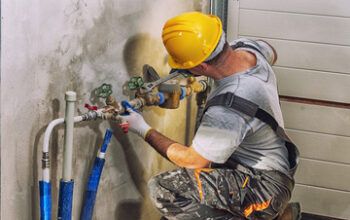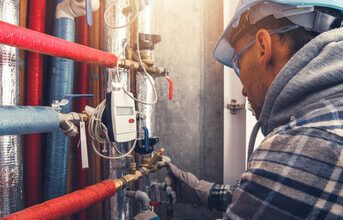A plumber is a professional who works in the plumbing industry. Plumbers install drainage systems, potable water systems, and sewage systems. He is also able to repair and maintain the water systems in homes and businesses. To become a plumber, you need to have the right training and education. This article covers the training requirements, job description, and salary of plumbers.
As a plumber, you’ll need mechanical and analytical skills, as well as a solid understanding of physics and water systems. You’ll also need to be comfortable working in dark environments and using small tools and gauges. You should also be physically fit and able to lift heavy equipment and work in cramped spaces. Finally, plumbers must have good communication skills and be able to work in teams.
In addition to the technical skills, plumbers perform maintenance on a wide range of household appliances and plumbing systems. This includes cutting and welding tubes and fittings and testing plumbing systems to ensure safety and functionality. They also respond to customer calls and troubleshoot plumbing systems. Plumbers typically have two or more years of experience and have good problem-solving and critical thinking skills.
Plumbers handle many different types of plumbing systems, including water, wastewater, and chemicals. They also install and maintain piping systems in buildings. They can also install and maintain septic systems. Some plumbers also install pipes that carry chemicals, while others install and maintain sprinkler systems. Plumbing technicians often work with electricians and must be able to communicate with them so that their work is safe and effective.
A plumber’s job description should be detailed, including key duties and responsibilities. A plumber’s duties and responsibilities include installing and maintaining plumbing systems in commercial and residential properties. They also install domestic appliances and fixtures related to sanitation systems, and they inspect and repair water and gas supply lines. A plumber’s salary depends on the state of the economy, and their hours of work often include evenings and weekends.
Plumbers can work in businesses, homes, and factories and are employed in many different settings. Plumbing jobs can range from installing water lines in buildings to fixing a broken toilet or installing a new dishwasher. Plumbers can also unclog pipes and handle emergency situations, such as leaking faucets or sewers. They are also called upon to perform inspections, such as repairing toilets and unclogging drainage systems.
The salary of a plumber varies widely, but the majority of plumbers work full-time. Their hours are typically long, with evenings and weekends taken up by emergencies. In addition to plumbing, plumbers also design hot and cold water systems. Ultimately, they must be able to communicate with customers and provide effective solutions.
A plumber can also specialize in pipeline construction engineering. A plumber can design, construct, and maintain a piping system. A plumber will also work with other professionals to ensure that the system is properly installed and functioning. In addition to installing sanitary systems, a plumber may also handle construction projects, such as new building projects and renovation projects.
The average salary of a plumber varies across the country. However, salaries are generally higher in some places than in others, particularly in the northeast. In the south, average salaries are lower than those in the midwest. Plumbers in rural areas earn lower salaries than their metropolitan counterparts. In contrast, plumbers in cities make an average of $89,712 annually. Some plumbers earn more than this, but it’s important to note that salaries can vary based on experience and education.
Experience is a key factor in determining the salary of a plumber. Those with more years of experience have more negotiating power with their employers. Additionally, plumbers who specialize in design or installation work may command a higher salary. Education is another important factor in determining the compensation package, and although it isn’t compulsory, it does improve job prospects. In addition, plumbers who have more education have more technical knowledge, which will increase their earning potential.
The average salary of a plumber depends on experience and location. Experienced plumbers can earn upwards of $60,000 per year. However, new plumbers can expect to make $43,000 or less. However, in high-demand metropolitan areas, salaries can reach as high as $73,000. The average salary of a plumber varies and is expected to increase by 11 percent by 2022.


